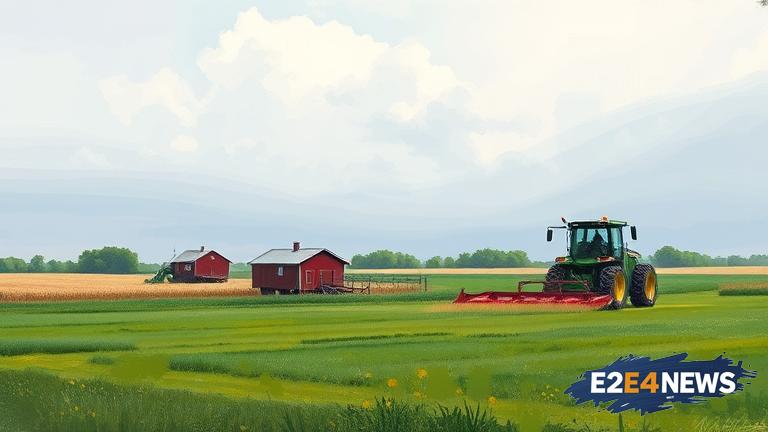Iowa farmers are facing significant challenges due to severe weather conditions that have been affecting the state in recent months. The heavy rainfall and flooding have caused widespread damage to crops, resulting in substantial financial losses for farmers. Many farmers have reported that their fields are still underwater, making it difficult to plant new crops. The delayed planting season has also led to concerns about the potential impact on crop yields. According to experts, the ideal planting time for corn and soybeans in Iowa is between late April and early May, but the weather conditions have made it impossible for farmers to plant on time. The situation is further complicated by the fact that the weather forecast for the coming weeks is expected to remain unpredictable, with a high chance of more rainfall and flooding. As a result, farmers are being forced to consider alternative options, such as planting different crops or using specialized equipment to deal with the wet conditions. The Iowa Department of Agriculture has announced plans to provide assistance to affected farmers, including low-interest loans and other forms of support. However, many farmers are still worried about the long-term impact of the weather conditions on their livelihoods. The situation is not only affecting farmers but also having a ripple effect on the entire agricultural industry, including suppliers, distributors, and consumers. The economic impact of the weather conditions is expected to be significant, with some estimates suggesting that the losses could run into millions of dollars. Despite the challenges, many farmers remain optimistic and are working hard to find ways to adapt to the changing weather conditions. The Iowa Farm Bureau has announced plans to provide resources and support to affected farmers, including workshops and training sessions on how to deal with the wet conditions. In addition, the organization is also advocating for policy changes to help farmers better cope with the impacts of climate change. The situation highlights the need for greater investment in agricultural infrastructure and research to help farmers adapt to the changing weather conditions. Furthermore, it also underscores the importance of providing support to farmers and rural communities, who are often the most vulnerable to the impacts of extreme weather events. Overall, the challenges facing Iowa farmers are a reminder of the complex and interconnected nature of the agricultural industry and the need for a comprehensive approach to addressing the impacts of climate change.



